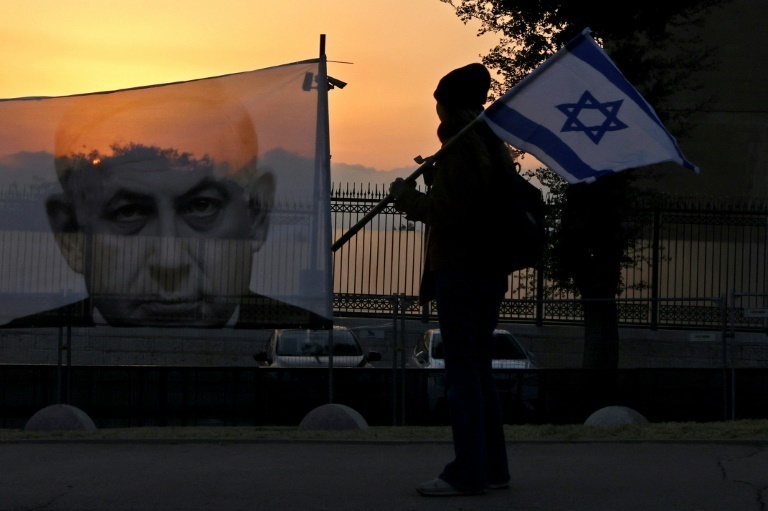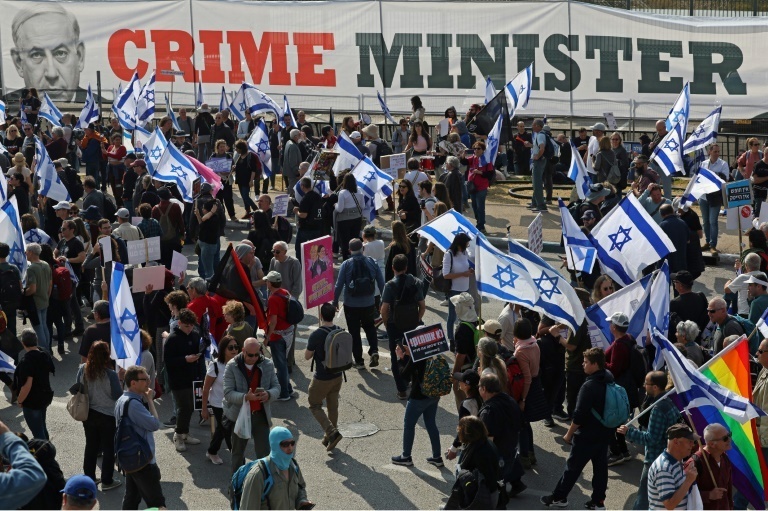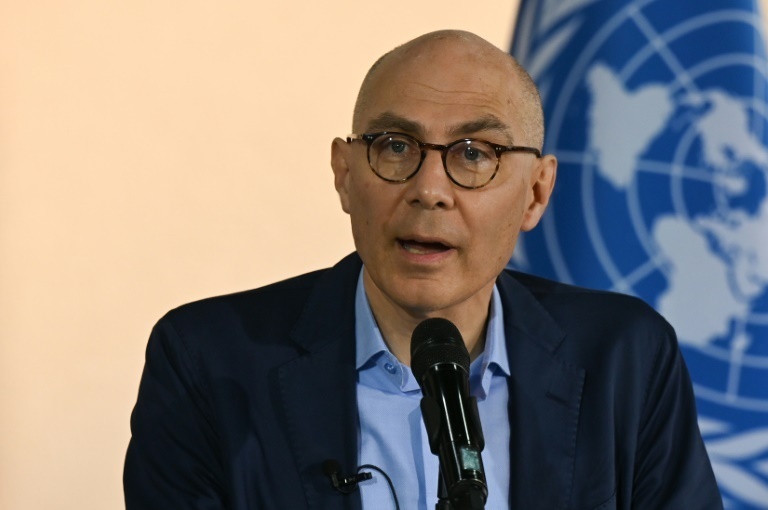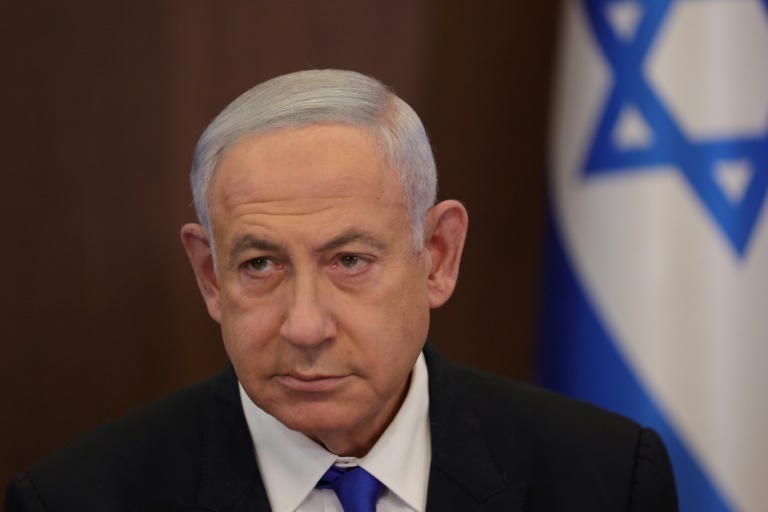Israel's parliament took a step towards approving a controversial judicial reform Tuesday despite weeks of mass protests against the legislation critics see as a threat to democracy.
President Isaac Herzog -- who has been attempting to broker dialogue on the divisive issue, which would boost the powers of politicians over the courts -- said there was widespread "fear for the nation's unity".
Lawmakers in the early hours voted by 63 to 47 to support a key bill in the reform at first reading. It will now return to the law committee for more debate, ahead of its second and third readings in the Knesset.

The reform is a cornerstone of Prime Minister Benjamin Netanyahu's administration, an alliance with ultra-Orthodox and extreme-right parties which took office in late December.
"This is a difficult morning," said the president, whose powers are largely ceremonial. "Many people fear for the nation's unity," Herzog said at a conference organised by the Ynet news website.

The Tuesday vote passed despite weeks of protests in Israel's main cities.
Tens of thousands again took to the streets of Jerusalem and Tel Aviv on Monday when, inside parliament, opposition lawmakers disrupted the debate with shouts of "shame".
- 'Drastically undermine' rights -

"History will judge you for this night -- for the attack on democracy, the harm to the economy, the harm to security, for tearing the unity of the people to shreds and simply not caring," Lapid said in a tweet.
The architect of the bill, Justice Minister Yariv Levin, called on the opposition to "come and talk".
"We can reach understandings," he said.
Netanyahu said: "We need immediate dialogue with no preconditions."
The prime minister has presented the judicial reforms as key to restoring balance between the branches of government, arguing judges currently have too much power over elected officials.

"Experience in Israel, and around the world, has shown the enduring value of a judiciary that can independently hold the other branches of government to the fundamental legal standards of a society set out in its basic laws," Volker said in a statement.
Another bill advanced as part of the reform would give the 120-member parliament the power to overrule Supreme Court decisions with a simple majority of 61 votes.
The opposition accuses the government of a power grab, and weekly protests against the legislation since early January have been joined by tens of thousands of people.
Critics, including Supreme Court president Esther Hayut, have condemned the reform as an assault on the independence of Israel's judiciary.

Netanyahu has denied the corruption charges. The veteran leader, who reclaimed power late last year after spending 14 months in opposition, has also firmly rejected any link between the reforms and his own trial.
jjm/kir/ami/fz
© Agence France-Presse
Your content is great. However, if any of the content contained herein violates any rights of yours, including those of copyright, please contact us immediately by e-mail at media[@]kissrpr.com.
Source: Story.KISSPR.com

